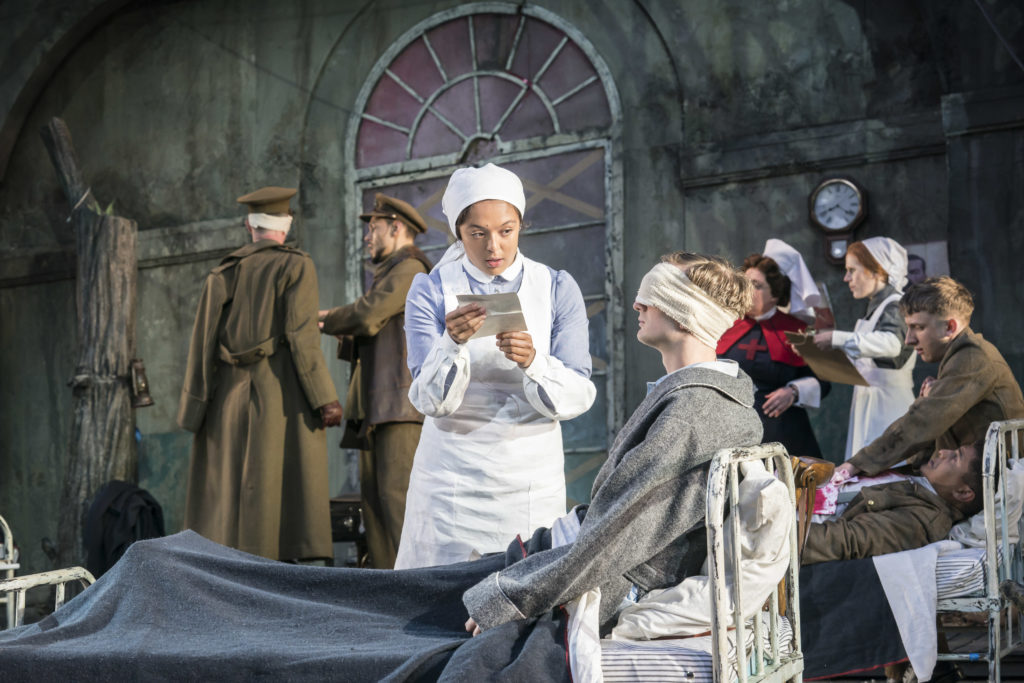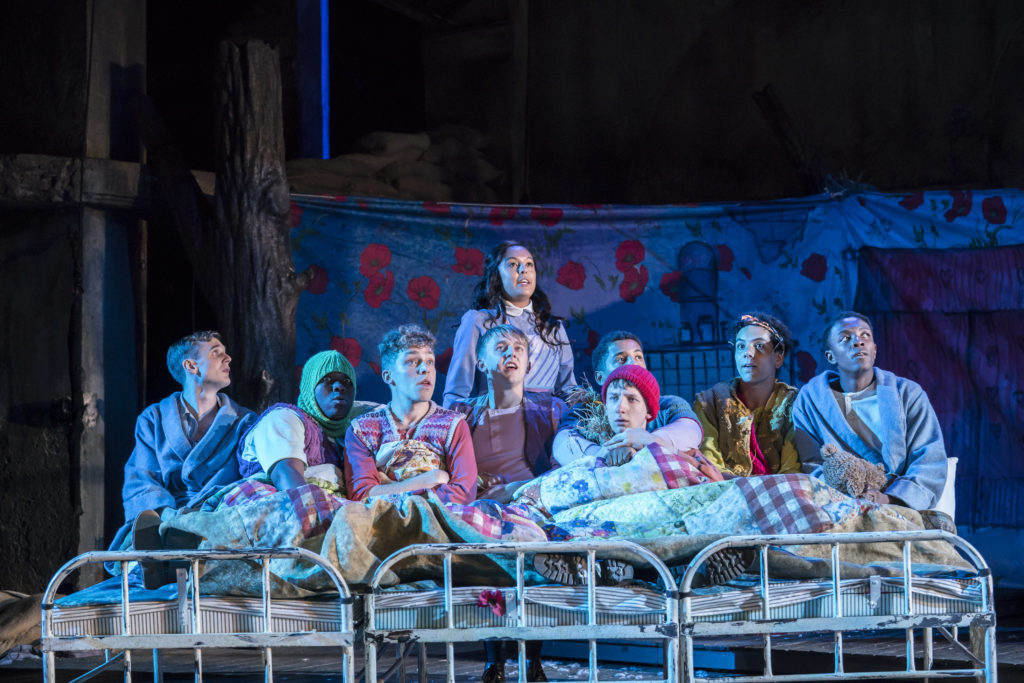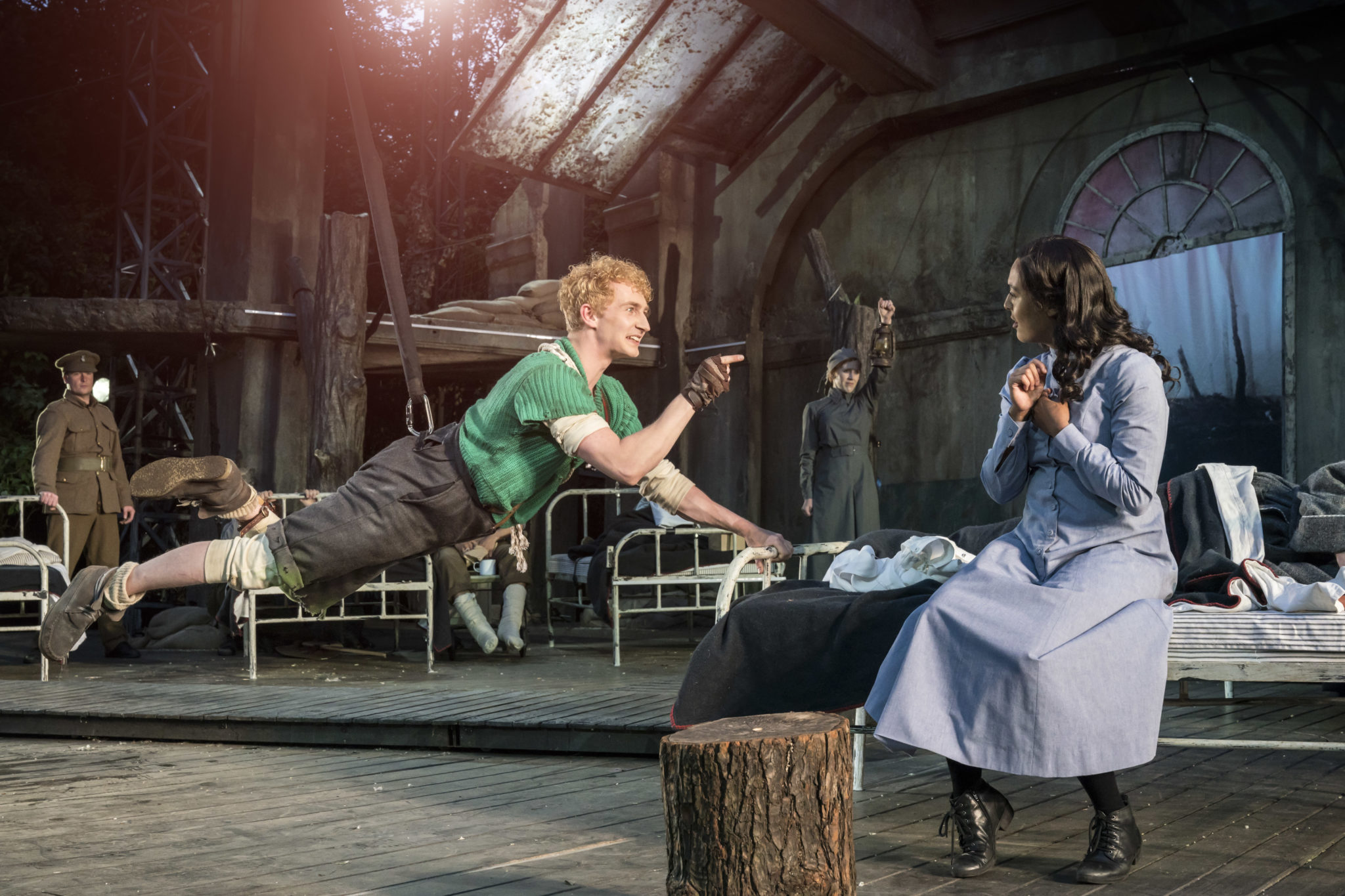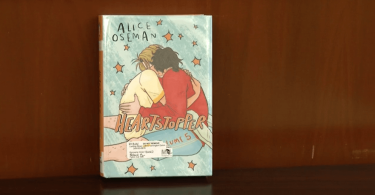The first encounter between Peter Pan and Wendy | Photo: Johan Persson
As 2018 marks the hundredth anniversary of the end of World War I, the rewrite of Peter Pan by Timothy Sheader and Liam Steel comes back to London. And it’s back to the place where it premiered in 2015, the Open Air Theatre in Regent’s Park.
The reimagining of J.M. Barrie tale, set in a military hospital, seems the right choice to commemorate a generation forced into adulthood in the worst possible way.
Nurse Darling, portrayed by Cora Kirk, is a caring, motherly figure to the soldiers forced in bed. When she finds a copy of Peter Pan belonging to a sightless soldier, she starts reading it aloud.

Cora Kirk as Wendy and Theo Cowan as John | Photo: Johan Persson
That’s how the magic of Barrie’s novel begins to unfold. The power of narrative turns the nurse into the strong-headed Wendy, the soldiers into the Lost Boys and an injured captain into the villain Hook.
A generation of Lost Boys
The hospital suddenly becomes Mr. and Mrs. Darling’s house. After receiving a visit from Peter Pan (Sam Angell), Wendy and her brothers fly away to Neverland with him. This classic moment gives the audience a glimpse of the story they all know and love. But not for long.
The constant overlapping between the brutality of war and the dreamlike atmosphere of Barrie’s fairytale convey a sense of alienation. The Lost Boys endearingly, desperately looking a mother, in fact, are as disoriented as those suffering from shell shock. Their and Peter’s refusal to grow up is even more heartbreaking if compared to the young soldiers who never had the chance to enter adulthood in their own terms.

Wendy is a maternal figure to the Lost Boys | Photo: Johan Persson
Jon Bausor’s set design frames the story within the reality of the war stunningly. The stage is surrounded by trenches, the hospital beds turn into boats and the bloody bedsheets make house walls at the touch of a hand. Notably, Peter can fly thanks to the help of lieutenants, strapping him into gear while marching in their uniforms.
‘To die will be an awfully big adventure’
The absurdity of death is effectively represented by Peter’s quote ‘To die will be an awfully big adventure’. This is possibly the most famous in the whole play, yet it now takes on a completely new meaning.
Some might claim that such a gloomy juxtaposition kills the intended magic of Barrie’s novel. The Lost Boys’ adventures, in fact, look more like hallucinations due to post-traumatic stress disorder than like a joyful break from an unbearable reality. Through the fairytale and their alter egos, the soldiers are able to dwell in childhood while agonizing in bed.
The realism, however, adds a thought-provoking element to the plot. Far from being mere entertainment, this adaptation is a lucid analysis of the horrors of war. Furthermore, it celebrates women and their crucial role during World War I through the characters of the nurses, often forgotten.
Despite the unnecessary, twee final scene where the old soldiers reminisce about their years in the army, this production works. And it works at its best when it lets the stark contrast between fantasy and reality do the talking.







